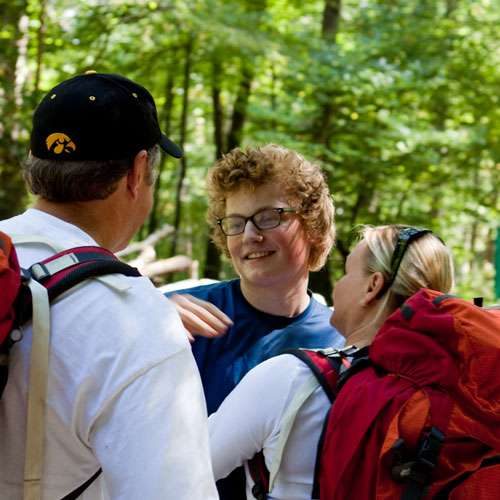Parenting teens isn’t always an easy feat, and parenting a rebellious teen who tends to act out, go against authority figures, and display oppositionally defiant behavior can seem near impossible. But before you get too discouraged, know that there is hope.
One of the first steps toward easing this bumpy road is understanding the “why” behind your child’s behavior. While adolescence is already a tumultuous roller coaster ride of emotions, teenagers in particular are navigating that time of self-discovery between childhood and becoming a young adult.
For parents struggling to support, connect, or communicate with their defiant child, below are some tips and strategies to help you avoid power struggles, encourage appropriate behavior, and effectively respond to defiance in ways that will benefit both you and your child.
Understanding Defiance & Defiant Behavior
Teen defiance can be described as an open resistance to authority, disobedience, or, at times, aggressive opposition. However, what many parents may not realize is that teen defiance is often an exaggerated expression of independence. This display of independence or differentiation from the parent or family is a way for a teen or a young person to explore their own lives and define their own identity. While defiance is a normal part of adolescence, defiant behavior can become too extreme and result in attempts to control and exert power in unhealthy ways.
 Additionally, teenagers who are exhibiting defiant behavior may be acting out because they are feeling difficult emotions such as insecurity, pain, fear, or anger and they don’t yet have the tools to manage these emotions and self-regulate in a healthier, more productive way. They may try to push people away or use further defiance because they feel powerless or feel that they are not heard and seen by others.
Additionally, teenagers who are exhibiting defiant behavior may be acting out because they are feeling difficult emotions such as insecurity, pain, fear, or anger and they don’t yet have the tools to manage these emotions and self-regulate in a healthier, more productive way. They may try to push people away or use further defiance because they feel powerless or feel that they are not heard and seen by others.
Defiant behavior can make a person feel powerful at times, but it can also make a person feel isolated, which can lead to more insecurity, fear, and anger. As parents, wanting teens to feel empowered and in control of their lives is natural. However, it is important to be able to connect with them in a healthy and relational manner when parenting or counseling them.
Assessing The Level Of Defiance
There are a few key indicators that defiant teen behavior is becoming a more concerning issue. The top three indicators to look out for are: your child is acting defiant at school and it is causing trouble for them academically; your child’s oppositional defiance is causing turmoil in peer relationships; and your child engages in oppositional defiance or arguments with family members in ways that become aggressive.

While the above are telltale signs that defiance may be becoming a problem, there are also some subtler things to look out for, such as a young person displaying unusual or sneaky behavior.
In addition to assessing the severity of the behavior itself, it is also important to assess the severity of the natural consequences of the child’s behavior to determine if there is a larger problem or issue. Parents and therapists can assess the severity of the consequences and how young people react to them.
For example, if a teen brings marijuana to school and receives a day suspension as a consequence, the teen could respond to that consequence in different ways. They might see the consequence as a wake-up call and respond by changing their behavior to something more appropriate, such as not bringing marijuana to school in the future, or ceasing all involvement with marijuana. Or, the teen could respond by acting as if nothing has happened and continue on with similar behavior patterns. If the teen doesn’t learn from their mistakes and correct their behavior, it could indicate a more serious defiance issue.
How To Deal With A Defiant Teenager: Strategies For Parents
Learning how to respond to your defiant teen can be challenging and frustrating at times, but learning to do so effectively can be incredibly rewarding. To help you navigate this challenge, we’ve put together a list of tips and strategies to make communicating and negotiating with your defiant teen easier and more productive.
Let It Begin With You.
Most children learn best through example, and while teens typically need more hands-on experience, they are also more likely to trust and open up to adults who practice what they preach.
If you want to help your teen transform their defiant behaviors into more appropriate behaviors, it can help to first deal with your own anger, frustrations, and sense of powerlessness. Talk to a therapist, reach out to your spouse, or join a parenting support group. Having your own support network to help you do your own work will help prepare you to better support your child.
Consider your own experience with defiance. Did you grow up a rebellious teenager? What is the origin of this behavior for you? If you can find a common ground to relate to your child in this way, your child may be more likely to accept your support and encouragement as you suggest ideas. Learn more about the Importance Of Parents Seeking Their Own Therapeutic Help.
Keep Calm, Be A Role Model.
It can be hard to keep a cool head when your teen is throwing insults at you left and right along with slamming a door in your face. The natural response is to answer aggression with aggression–but it’s critical to fight that urge. It’s best to stay focused, explain to them why their behavior was inappropriate and what the ensuing consequences will be as a result. By staying calm, you’re showing them how they should act in heated situations instead of just enforcing consequences.
Collaborate On Rules.
This may sound odd, but it’s a way to include your teen in the rulemaking process, thus giving them a sense of control and responsibility. Much of why children hate rules so much is because they have no choice in them. By bringing your child into the crafting of consequences and rules, the two of you are gaining a stronger understanding of the rules together.
Recognize Good Behavior.
When it comes to defiant teenagers, it can become easy to focus solely on what they do wrong because so much of what they’ve been doing is wrong. This is a mistake, though. When you only recognize bad behavior, it gives less incentive for teens to act correctly because it doesn’t get recognized. Try to take notice when your child behaves well in order to reinforce good behavior.
Patience, Patience, Patience.
Yes, it would be absolutely spectacular if it took only a day or even a week to change your teen’s defiant behavior, but that’s not realistic. It takes time. Don’t expect results immediately or even on the fifth try. Taking it one step at a time is slow, but it’s much more effective than rushing ahead and trying to change everything at once.
Trails Carolina Offers Help For Struggling Families & Teens Exhibiting Defiant Behavior
Teenagers can be hard to handle–we’re in the business of providing help for defiant teens, we get it. We also understand that sometimes it’s too much for one family to handle alone, and that’s nothing to be ashamed of.
If you believe your son or daughter is struggling with a mental health issue, it’s essential to reach out to a professional for further guidance. Help for defiant teens is out there, you just have to search for it.
Searching for the right program that fits your struggling teen can be a lengthy and slow process. If traditional outpatient therapies aren’t offering improvements, it might be time to look into a wilderness therapy program like Trails Carolina.
Trails Carolina is a wilderness therapy program for teens, ages 10 to 17, struggling with issues such as depression, oppositional defiant disorder, anxiety, ADHD, and many others. We strive to create meaningful change within our students through the use of individual, group, family, equine, and wilderness therapy. We can help your family recover.
For more information about help for defiant teens at Trails, contact us today at 800-975-7303.
Get started today
Contact us today to learn how Trails Carolina can help your family
Trails saved my daughter’s life. Amanda is an amazing human and a brilliant therapist. I am so grateful to her, Science Steve, and the other wonderful people who could reach my daughter at a time when I could not.
Margot Lowman August 2022
Great life changing experience for our son. After becoming addicted to gaming during covid he was very depressed. At Trails he experienced the wilderness, Science Steve, learning survival skills and top notch therapy and support etc… I highly recommend! This gave our son and our family a renewed family bond full of love and excitement about his bright future.
Winnifred Wilson July 2022
Outstanding clinical work and superb staff! There’s a great culture at this company and it shows with how they engage with families/clients.
Kristin Brace June 2022
Discover If Trails Is The Right Program For Your Child
Take our short online assessment and help us better understand how we can help your family.




